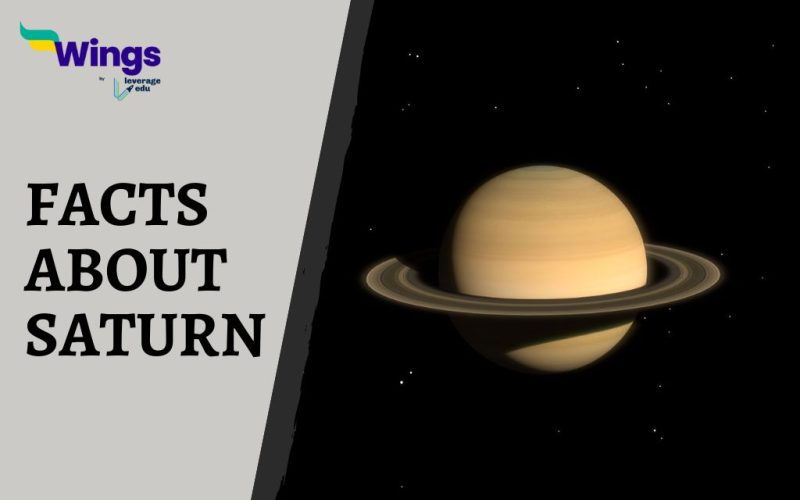The sixth planet in our solar system, Saturn, is also the largest. Just like Jupiter, Saturn is also a gas giant that consists of gases such as hydrogen, helium, and methane. Saturn has less than one-third of Jupiter’s mass, despite being almost twice as big as Jupiter. With an orbital period of 29.45 years, Saturn orbits the Sun at a distance of 9.59 AU (1,434 million km). Read this blog to learn more fun and interesting facts about Saturn.
Table of Contents [show]
Unknown Facts About Saturn
The heart of Saturn is a rocky core, blanketed by a deep layer of metallic hydrogen. The layer between them lies an intermediate layer of liquid helium and hydrogen.
- Saturn is the fifth brightest object in our solar system and can easily be seen with the naked eye.
- Babylonians worshipped Saturn as God and the far eastern observers.
- With a 90 % polar diameter because of low density, it is the flattest planet
- The Assyrians called it “Lubadsagush” because of its leisurely motion against the starry sky.
- The top layers of Saturn are divided into several clouds.
Also read: 20 Interesting Facts About Earth for Students
Facty Facts about Saturn
Saturn, the sixth planet in our solar system, mostly comprises hydrogen and helium.
- The rings of Saturn consist of chunks of ice. These rings are the orbit that we see surrounding Saturn.
- Saturn has around 150 moons, and the largest of them are Titan and Rhea.
- With more than 80 moons, Saturn has the highest number of moons than other planets.
- Radio waves from Saturn have the ability to produce sound. A cosmic symphony has been compared to these unsettling noises.
- Methane rains from the sky, forming channels and river valleys on Titan that resemble those carved out by Earth’s water.
FAQs
Saturn is mostly composed of hydrogen and helium, with its rings made of ice chunks.
Saturn has around 150 moons, the largest being Titan and Rhea.
Yes, Saturn’s radio waves can be converted into sound, resembling a cosmic symphony.
Related Blogs
Hope you had fun reading these interesting facts about Saturn. If you like reading about facts, you can visit our interesting facts page to read more such blogs.
 One app for all your study abroad needs
One app for all your study abroad needs















 45,000+ students trusted us with their dreams. Take the first step today!
45,000+ students trusted us with their dreams. Take the first step today!
